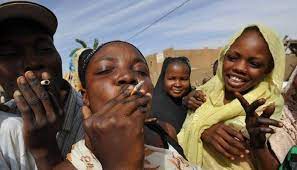Women are faced with unique issues as regards drug use, this is influenced by their biological make up as well as cultural roles.
Research has found that women use drugs in smaller amounts than men, but they can experience the effects more strongly.
Substance use in women tends to develop in addiction more quickly than in men. The growth, development and wellbeing of women in the society are threatened by the scourge of drug abuse.
The UNODC carried out a household survey in 2018 on the prevalence and use of drugs in Nigeria and arrived at a statistics that one out of every four persons using drug is a woman. This clearly shows that involvement of women in drug use is on the increase.
This challenge continues to undermine the stability of families for which women are the pivots.
Women are the key to sustainable socio-economic development and quality of life in the society.
The woman performs the role of a wife, partner, organiser, administrator, director, recreator, disburser, economist, mother, disciplinarian, teacher, health officer, artist and queen in the family at the same time.
A drug is any substance which could be natural or chemical which when used alters the right functioning of the body leading to behavioural and physiological changes.
What this means is when drugs are abused it affects the reasoning and concentration of a person, leading to loss of focus, wastages of all kinds, violence, causes damages in the body organs, etc.
This effects challenge the roles and responsibility of women in the society. When this happens, the society is at a loss because the woman is a key component of societal development.
Self administration of drugs should be discouraged. The use of local, herbal preparations should be discouraged.
Introduction of drug testing for teens and young adults to determine their status should be encouraged.
Women should be empowered through skills and job creation to enhance their contribution to society and motivation to lead.
Ojochide Olije Ayagba,
Lokoja, Kogi state
[email protected]




